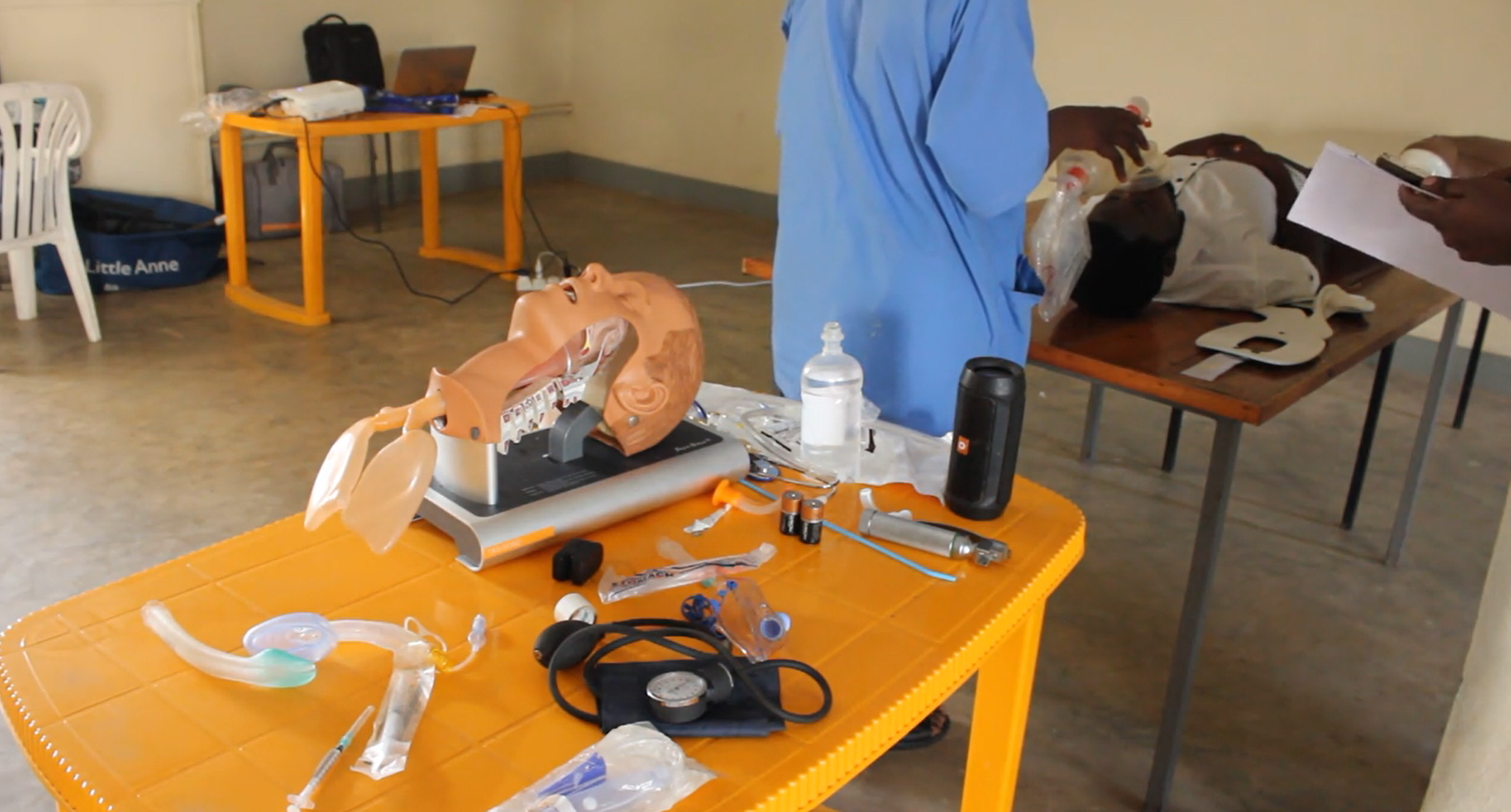Strengthening Critical Care in Burundi: Building from Respiratory Care to a Full EECC Approach
In recent months, the EECC National Hub in Burundi has taken an exciting step forward in strengthening care for critically ill patients. Under the leadership of Dr. Gilles Eloi Rwibuka, the Hub has launched a new initiative to enhance respiratory care capacity by training and mentoring nurses as “Respiratory Nurse Mentors”, with funding from DAK International Network (DIN). This is a major achievement in itself — but it also represents something bigger: how EECC National Hubs are helping countries to embed Essential Emergency and Critical Care (EECC) across all aspects of hospital care.
A Focus on Respiratory Care
Respiratory compromise is one of the leading causes of death for critically ill patients worldwide. In Burundi, as in many countries, healthcare workers face the challenge of caring for large numbers of patients with pneumonia, sepsis, and other life-threatening conditions that affect breathing. Oxygen therapy, airway management, and respiratory support are vital skills, yet training opportunities have often been limited.
The Burundi Hub is tackling this gap directly. Seven motivated nurses will be recruited and trained as Respiratory Nurse Mentors. Through clinical training and mentorship skills workshops, they will gain the expertise to support their colleagues in intensive care units, emergency departments, and operating rooms. Once deployed to high-volume hospitals, these mentors will provide hands-on guidance, co-manage complex cases, and introduce standardized respiratory care protocols.
This is a milestone achievement: it builds on earlier oxygen therapy programs and provides continuous, sustainable support for frontline nurses who care for the sickest patients.
Training taking place in Burundi
Why This Matters for EECC
At the heart of this project lies the principles of EECC — simple, low-cost, life-saving actions that every hospital should be able to provide, no matter where in the world it is located. Respiratory care is a crucial part of EECC, but it is just part of the 40 essential actions and treatments that make up the EECC package.
These include:
Monitoring vital signs regularly so deterioration is detected early.
Administering intravenous fluids for patients with shock.
Managing the airway safely and effectively.
Ensuring safe care of critically ill patients , such as effective communication and
Respiratory care is just one part of the picture. The Burundi Hub is making sure it’s delivered together with other essential treatments — like monitoring vital signs and giving fluids for shock — so patients receive complete, life-saving care
Collaboration and Local Leadership
The success of the Respiratory Nurse Mentor initiative is rooted in partnership. The Burundi Hub is working closely with the Association Burundaise des Praticiens Cliniciens Avancés Anesthésistes Réanimateurs (ABPCAAR), the Ministry of Health, and seven participating hospitals. Together, they are ensuring that the training is context-appropriate, aligned with national priorities, and sustainable for the long term.
The EECC Hub model itself is key here. Each National Hub is led by local champions who understand their country’s needs and how to apply EECC principles in ways that fit their own context. This ensures that change is not imposed from outside but built from within, with ownership and sustainability at the core.
Looking Ahead
The Burundi Respiratory Nurse Mentor initiative is already generating excitement. With strong local leadership, practical training, and government partnership, it has the potential to transform respiratory care in hospitals across the country, alongside the full EECC package.
EECC Global will continue to provide guidance, tools, and support, ensuring that respiratory care improvements are integrated with the broader set of essential actions that save lives daily.
A Growing Global Network
Burundi is part of a growing movement. Globally, EECC National Hubs are taking shape — each one a center of activity where health professionals are uniting to make essential emergency and critical care a reality in their country.
The progress in Burundi shows what is possible when local champions take the lead. The Hub is using such opportunities to expand beyond respiratory care to strengthen vital signs monitoring, care of unconscious patients, shock treatment, and all of essential emergency and critical care. In doing so, it will help ensure that every patient, no matter where they are treated, has access to the simple, life-saving care they deserve.
👉 Learn more about the EECC National Hubs and how you can get involved here.

